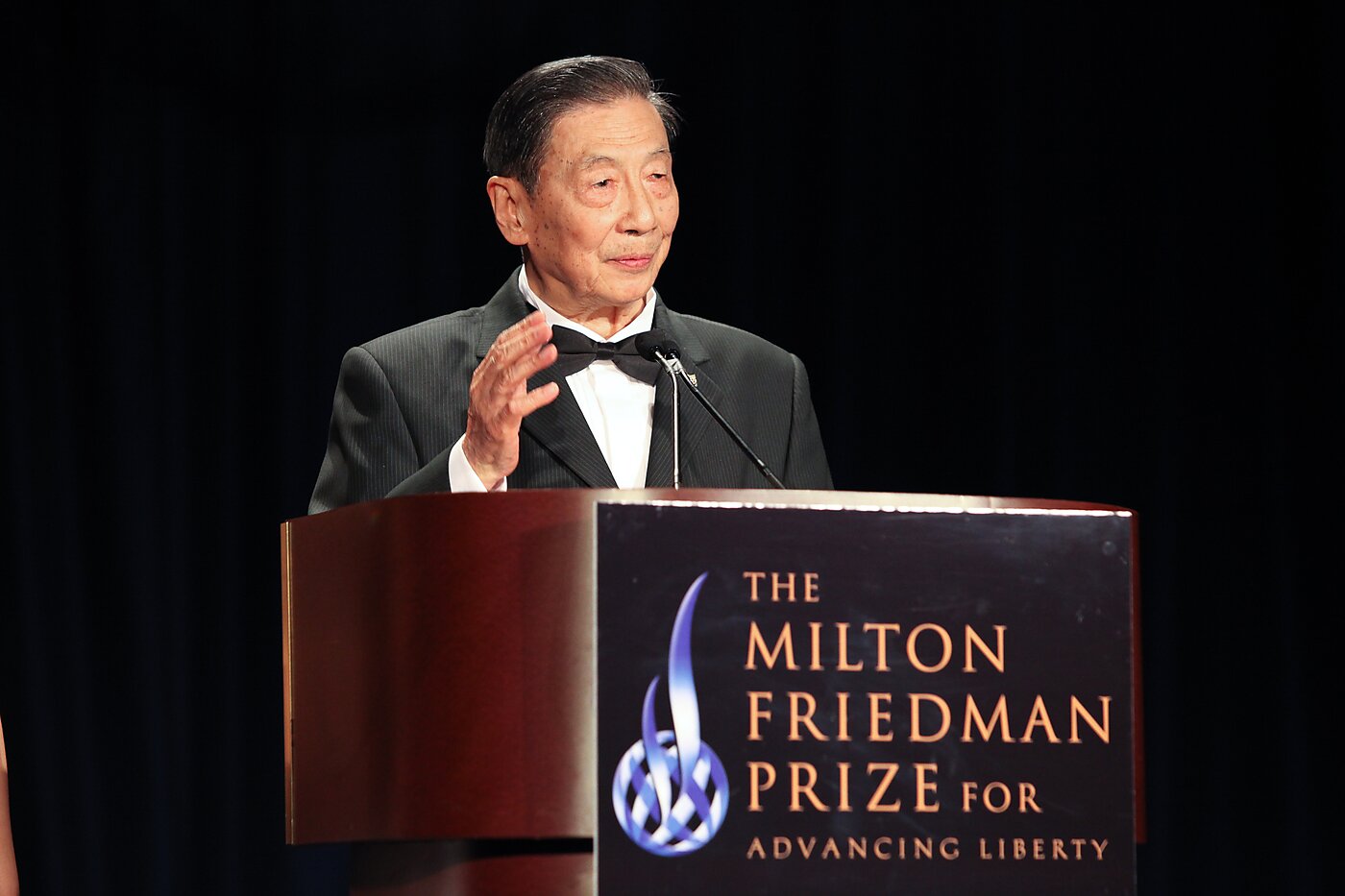[caption align=“right”]
Mao Yushi accepts the 2012 Milton Friedman Prize for Advancing Liberty[/caption]
All lovers of liberty and limited government should celebrate Mao Yushi’s 85th birthday on January 14. He was a signatory to Charter 08 and the recipient of the 2012 Milton Friedman Prize for Advancing Liberty. As chairman of the Unirule Institute of Economics in Beijing, Mao Yushi has been instrumental in spreading classical liberal ideas in China. In 1998, he commissioned the first Chinese translation of F. A. Hayek’s classic text, The Constitution of Liberty. Unirule (Tianze or “Universal Rule”) conveys the fundamental principle of liberty under the law.
Mao was educated as a mechanical engineer but later became interested in economics and how China could make the transition from central planning to a market economy. In 1957, he was purged from the Chinese Communist Party during the Anti-Rightest Campaign, and he lost his job as a railroad engineer. Later, during the Cultural Revolution, he lost his property when Mao Zedong outlawed private ownership.
After Deng Xiaoping’s opening to the outside world in 1978, Mao Yushi was invited to rejoin the CCP but refused. Instead, he became a leading critic of the Party’s monopoly on power and an advocate of free markets and civil society.
In a recent essay, “Returning Mao Zedong to Human Form,” he argued that Chairman Mao should be subject to open criticism and not be viewed as a god—and called for removing Mao’s picture from Tiananmen Square and from the Chinese currency. As Nobel Peace Prize winner Liu Xiaobo has said, Mao Yushi’s “bravery is worth our respect.”
At Unirule, Mao Yushi has attracted many younger scholars to discuss the institutions necessary for a market economy, particularly private property rights and a legal system that protects basic human rights. He holds that the state should protect the people who should be free to choose—an idea that goes back to Lao Tzu.
In addition to drawing from the work of Hayek, Mao Yushi and his colleagues at Unirule have developed the ideas of Nobel Laureate economists Douglass North and Ronald Coase, focusing on the “new institutional economics.” Peaceful development requires nurturing the right institutions and, in Coase’s words, requires a “market for ideas,” not just for goods and services.
In China’s Future: Constructive Partner or Emerging Threat? (Cato Institute, 2000), Mao Yushi wrote, “”The major obstacle to developing market institutions in China is the special privilege rights that lie beyond, and conflict with, human rights.” That obstacle is still present, and Mao is still fighting for the people’s rights. His courage in advancing freedom and civil society in China—through his writings, Unirule, Fuping Development Institute, and, most recently, the Humanism Economics Society—deserves our admiration and respect.

